Dear Friend,
I hope this December is treating you well.
Thank you for your patience as I know it’s been a little while since my last letter. I will be back in a better rhythm soon, and I also have a couple of wonderful guest letters in the pipeline.
The Christmas season starts later here in Paris than it does in the UK. I noticed Christmas kiosks on the South Bank in London in October, whereas the trees and decorations in front of my local town hall only went up a few days ago. I always enjoy seeing the installation in progress — a group of gruff-looking men in high-vis vests hanging iridescent baubles. Delightful!
There are other subtle signs of festivity, too, like my neighbour on the first floor who has been practicing his baritone part in his choir’s Christmas concert; or the sudden profusion of foie gras, marrons glacés and chocolates in our shops.
Christmas harbingers aside, it’s been quite the week for France. In the same seven days, the president has seen his government fall apart, and also convened world leaders under the vaults of a shiny new Notre-Dame. The contrast between the two happenings is an embodiment of the double nature of the role of president of France in general, and this president of France in particular.
As head of state, the president is at once the ceremonial representative of the country abroad, and also the chief executive of the domestic government. For Macron in particular there is quite a division between how he’s seen in these two roles (and which he seems to enjoy more). From what I can gather, Macron is generally quite well regarded abroad, perceived as a relatively moderate voice in an age of widespread populism in the West. People from the UK and the US are often quite surprised to learn how unpopular and often disdained the president is in his own country.
Earlier this year I wrote about Macron’s decision to call a snap election following a strong showing for the far-right Rassemblement National party in the European elections in June. At the time I described it as follows (if you’ll excuse me quoting myself):
“Apparently the president’s thinking is to sort of call the electorate’s bluff by giving them the chance to vote the far-right in properly if they LOVE THEM SO MUCH. It seems to be the global-leader equivalent of finding your teenage child smoking and then making them smoke 20 cigarettes in a row to teach them a lesson.”
The election this summer ended up delivering an even more fractured parliament, divided into three main blocs: the Nouveau Front Populaire left coalition; a grouping of Macron-sympathetic centrists; and Le Pen’s Rassemblement National (the artist formerly known as the National Front).
Macron pushed back the decision to name a prime minister, citing the Olympic Games as a reason. Most likely he was also not looking forward to the task. The prime minister is meant to reflect the composition of the parliament. There was no completely obvious choice given the fracturing, but it was quite widely thought that a figure from the left coalition would be named, reflecting their success in the vote. Instead, Macron finally named Michel Barnier, best known in the UK for negotiating on behalf of the EU during the Brexit process. He is from the centre-right party Les Républicains, who trailed in fourth place with only 8 percent of the vote. Barnier was reportedly only appointed after Le Pen approved the choice, and he has been reliant on her party’s support since he started in the role.
Quite predictably, he was not able to get much done at all. This week he tried to pass a new austerity budget, including stark cuts to social security. Without broad support, he attempted to use the controversial Article 49.3, a constitutional loophole that allows the PM to pass a measure without putting it to parliament. The same power was used to push through the hugely unpopular retirement reforms last year.
The only means for the parliament to block this measure is with a ‘motion de censure’ or motion of no confidence. The left coalition immediately called for such a response, and Le Pen was cast as king-maker once more as the votes of her party’s bloc had the power to topple Barnier. After a frantic day of debates in the Assemblée Nationale on Wednesday, Barnier lost the vote and became the first PM to lose the job in this way since 1962.
The short-lived prime minister handed in his resignation on Thursday morning. Meanwhile, the last preparations for the grand reopening of Notre-Dame were taking place. This event in itself took on a political dimension as high-profile figures such as Prince William, Volodymyr Zelenskyy, Donald Trump himself and even his ever-present pal, Elon Musk, were announced as attendees.
Macron delivered an opening speech at the ceremony that was originally meant to be spoken on the parvis in front of the cathedral to embody the separation of church and state. In the event, the weather conditions created by Storm Darragh meant that in the end Macron’s speech and in turn the political element of the ceremony were brought inside. It made for an odd scene. With a home country in political crisis, and a once-sidelined Trump now re-embellished and renovated himself, the president’s lofty speech evoking “fraternity” seemed particularly bold.
The church, nonetheless, looked magnificent. You can read my article about the renovations here (let me know if you’d like a cheeky PDF).
A note: —One of the few ways I have been able to make sense of the world at the moment is drawing Donald Trump and Elon Musk as vintage Body Shop products (see below).
Man, I Lille like a woman
This week, two dear childhood friends were in town. We had originally planned to take a mini-trip to Strasbourg to see its famous Christmas market, but had to abort that plan when we discovered train tickets were approximately 7 million euros due to high festive demand.
Instead, we went to Lille, which also has a Christmas market. It was my first time in the northern city close to the Belgian border known as the ‘capital of Flanders’. It has a mix of French and Flemish elements in its history and with its tall townhouses generally feels quite Dutch or Belgian. In fact, on the blue-sky cold day we visited, it could almost have been Copenhagen.
I knew it would be quaint and that the old town was chocolate-box pretty, but I wasn't expecting it to be so FUNKY. It was full of independent coffee shops, little boutiques of trinkets — all those things that make Londoners and Parisians feel safe.
We even had lunch at La Bellezza, a pizza restaurant by the unstoppably everywhere Big Mamma group. Every time I visit one of their restaurants, I feel vaguely manipulated, aware that every element of the just-so, slightly kitsch stylings have been curated to make my lunch feel slightly more exciting and desirable (hence the queues that usually form outside their restaurants). And yet, the pizza is invariably excellent, and gosh darn it I DO love the novelty carafe in the shape of a fish and the retro playlist, so what can I do?
We also visited Meert, a lavish centuries-old confectioner’s, pastry shop and tea room known for its waffles and other sweet delights. Here, we watched an exacting man sniff several pots of tea, and we also marvelled at elaborate and indecently expensive chocolate sculptures.
Later in the afternoon, after almost falling into a hot-chocolate-induced coma, we jumped on the Line 2 Metro and headed to the nearby town of Roubaix, part of the European Metropolis of Lille. It was historically a hub for the textile industry, which boomed in the 19th century (I’ve seen it referred to as the “Manchester Français”). In the early 20th century, the socialist municipality built public housing and facilities intended to improve quality of life for local workers and families, including play areas for children and a grand Art Deco swimming pool.
The textile industry declined in the 1960s and many of the former warehouses are now transformed into art and cultural spaces. We visited the magnificent Piscine museum, housed in the ornate former pool. I had seen pictures of this place and long dreamed of going. It did not disappoint. The central pool area has been narrowed and turned into a soothing water feature, surrounded by sculptures, including some beautiful sculptures by Camille Claudel. Around the outer edge of the pool and on the galleried floors above it, tiled former changing rooms and showers are transformed into mini exhibition spaces, showing off a curious range of ceramics (including some Picassos), high-fashion dresses and also some interesting 19th century paintings.
As we walked back to the Metro, we enjoyed some charming projected light shows on the church and town hall.
Throughout the day, the three of us spent a significant time coming up with songs in which we could replace the word ‘feel’ with ‘Lille’: ‘You make me Lille like a natural woman’; ‘I Lille for you’; or indeed, ‘Man, I Lille like a woman’.
It was an excellent day.
Thirty-second book club
I recently recommended my friend
’s book ‘In Writing’ — and that recommendation definitely still stands. You ought to buy it as a Christmas present for anyone in your life who is even remotely interested in writing or reading.Well, to accompany the release of her book, Hattie also released a new series of her podcast, full of interviews with interesting writers of all kinds. Inspired by the charming episode with legendary British cartoonist and writer Posy Simmonds, I re-visited a borrowed copy of Simmonds’ graphic novel Gemma Bovery. For a long time I have felt like I ought to be into graphic novels, after all — words, I like them! Pictures, I like them too! But somehow I had never quite got in the groove with them. But as soon as I’d read/eyeballed a few pages of Gemma Bovery, I was gripped. It’s a witty retelling of Gustave Flaubert’s tragic tale of a woman ruined, Madame Bovary, only transposed onto the early 21st century and a British couple who moves to a village in Normandy. The observations about the British, the French, class and culture are spot-on, and the world of it is so well-evoked. Much of the action is narrated by the clumsily un-self-aware local baker, Raymond Joubert, a transplanted Parisian who becomes obsessed with Gemma, at least as an idea. Strangely enough, my copy is a loan from my friend Dr. Diane and it is the French translation of the book by Lili Sztajn and Jean-Luc Fromental. On Hattie’s podcast, Simmonds compliments the quality of the French translators’ work, and I must say it’s quite impressive to see how they manage to capture the exaggerated Brit-isms and French-isms so well. The book would make another great Christmas gift.
On the subject of French and Britishisms, I had a wonderful time this weekend seeing comedian
do stand-up in Théâtre de l'Atelier in Montmartre. She has developed a big following online for her excellent skits comparing how a British and French person would approach the same situation e.g. holidays, parenting, getting married, going to a restaurant etc. It’s so well observed, and her show included some fantastic impressions, but also some longer storytelling about her life spent between France and England, and how she feels not quite at-home in either place. A feeling familiar for many of the Franco-British type people in the room.Thank you for reading this letter about municipal baubles, crumbling governments and re-embellished behemoths; about Flanders, food and art; and my new love of graphic novels.
Et voilà ! That’s all for now. I’ll write very soon.
Yours,
Hannah




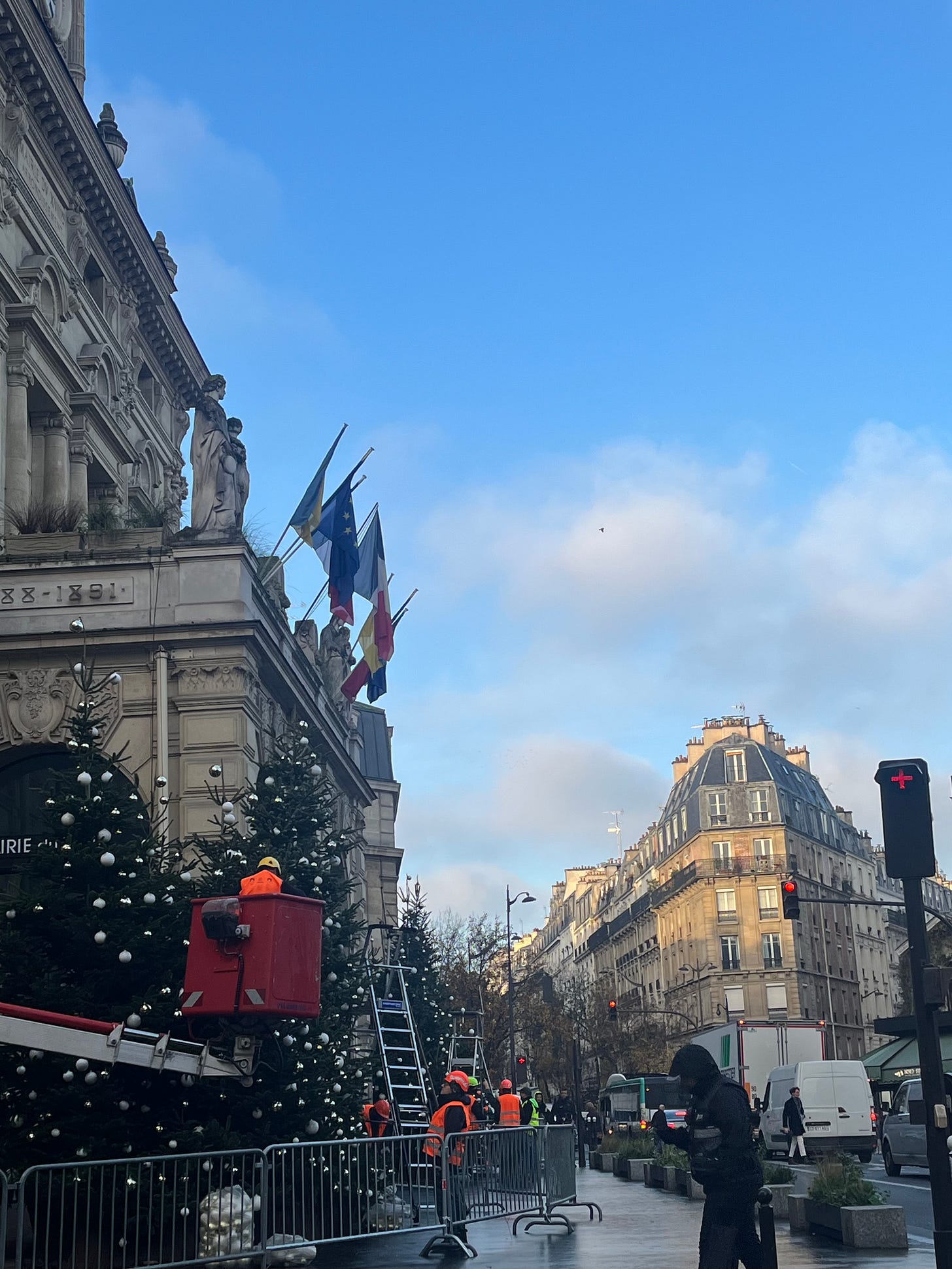

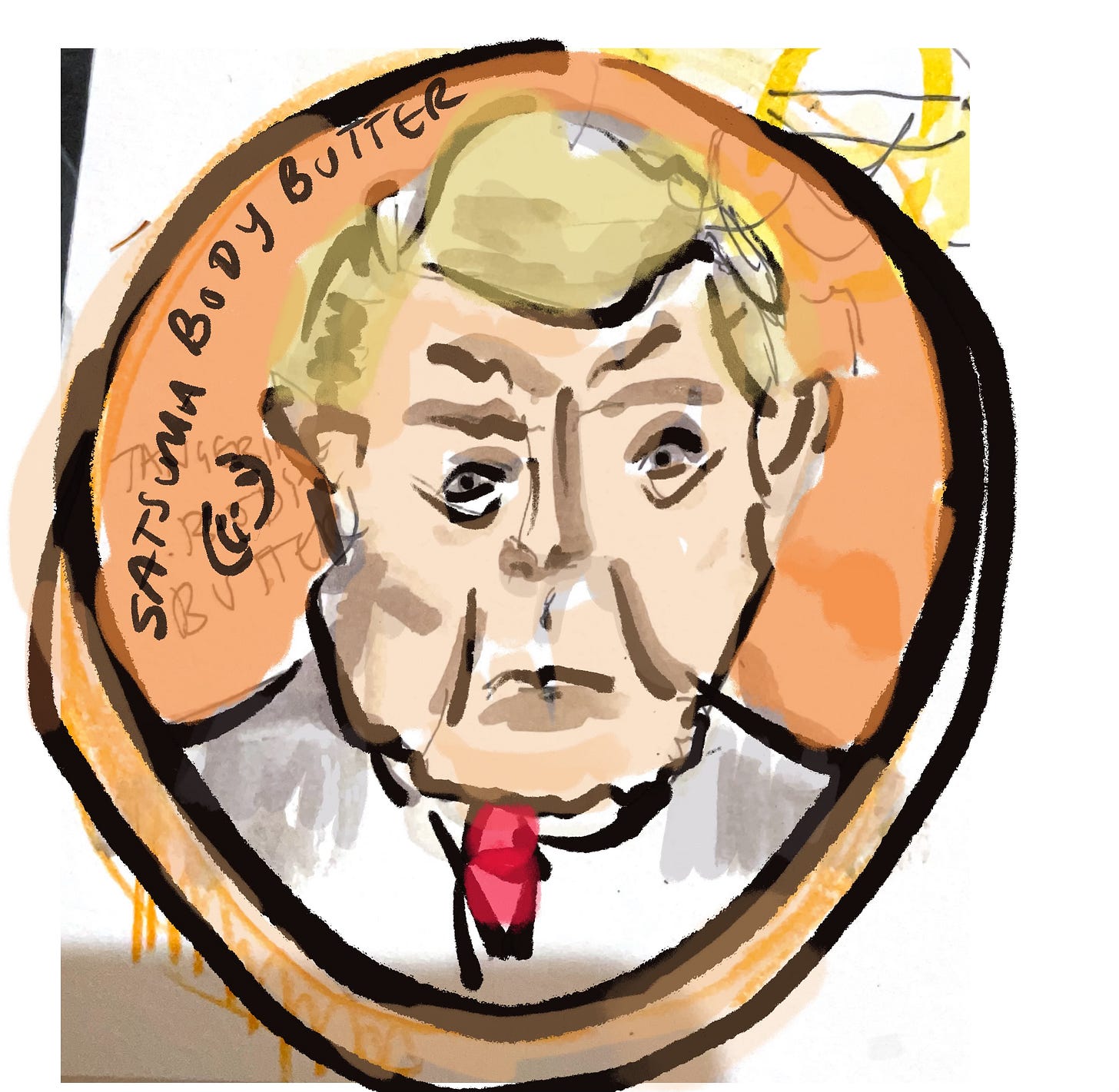

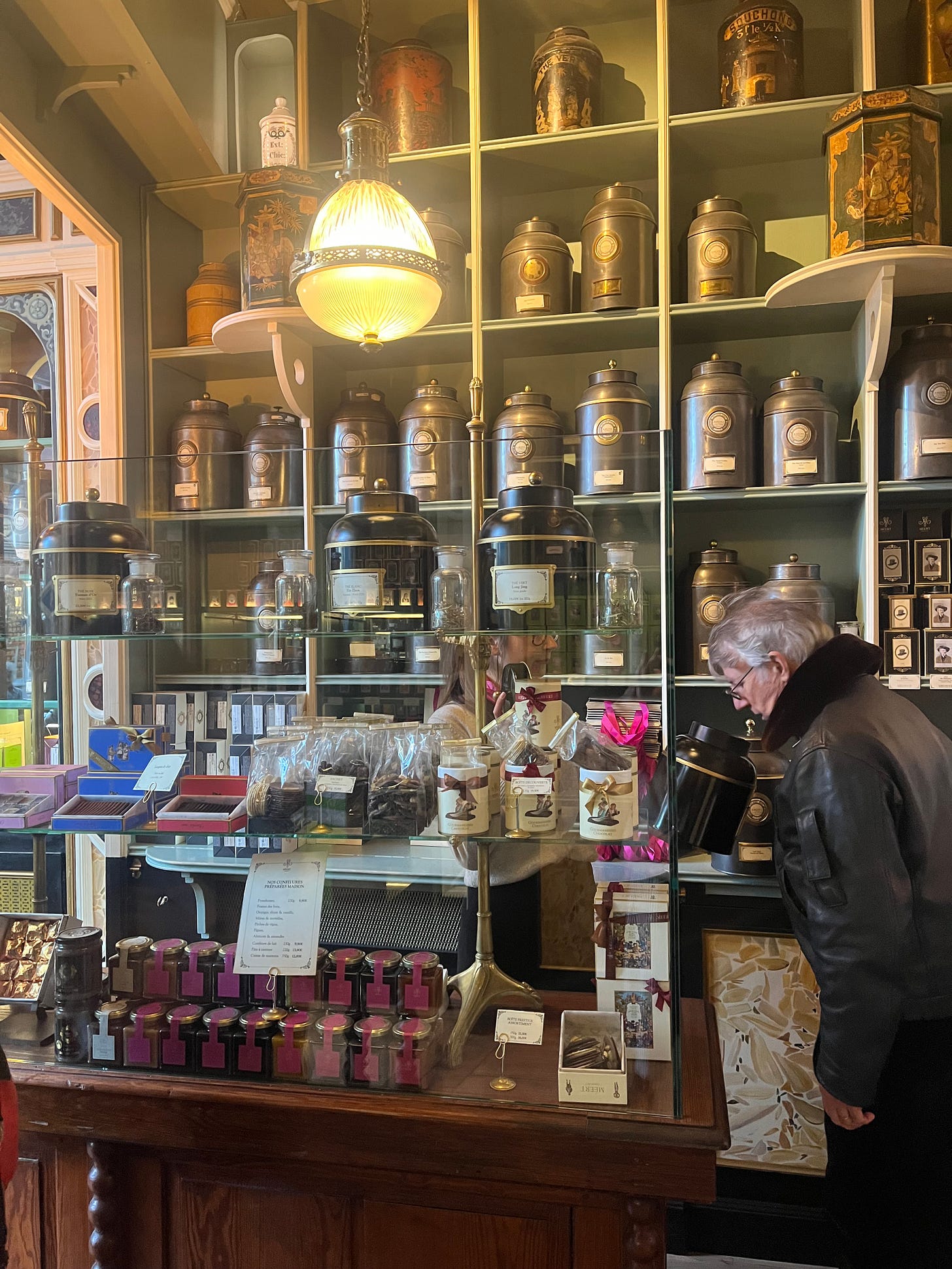
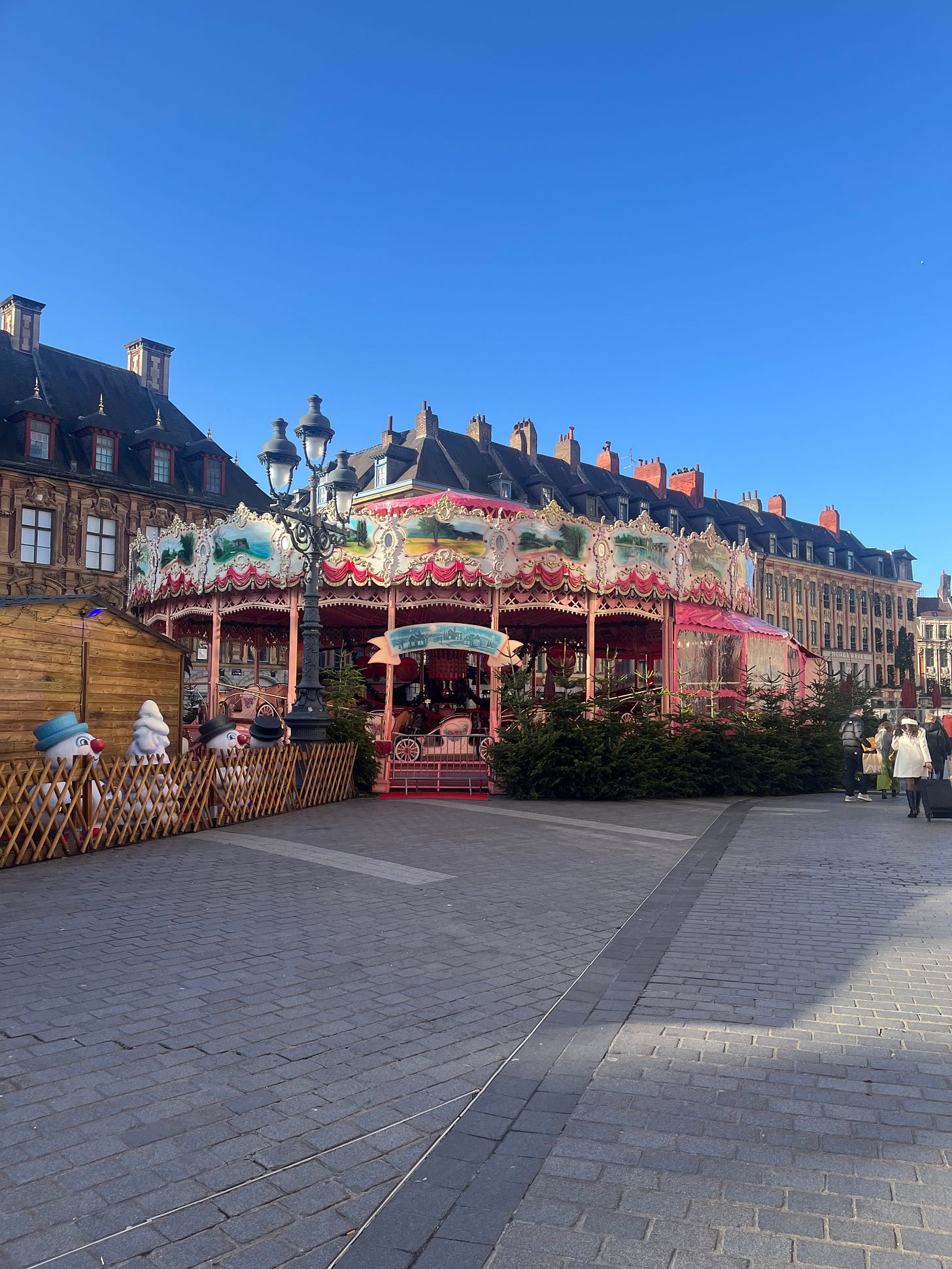
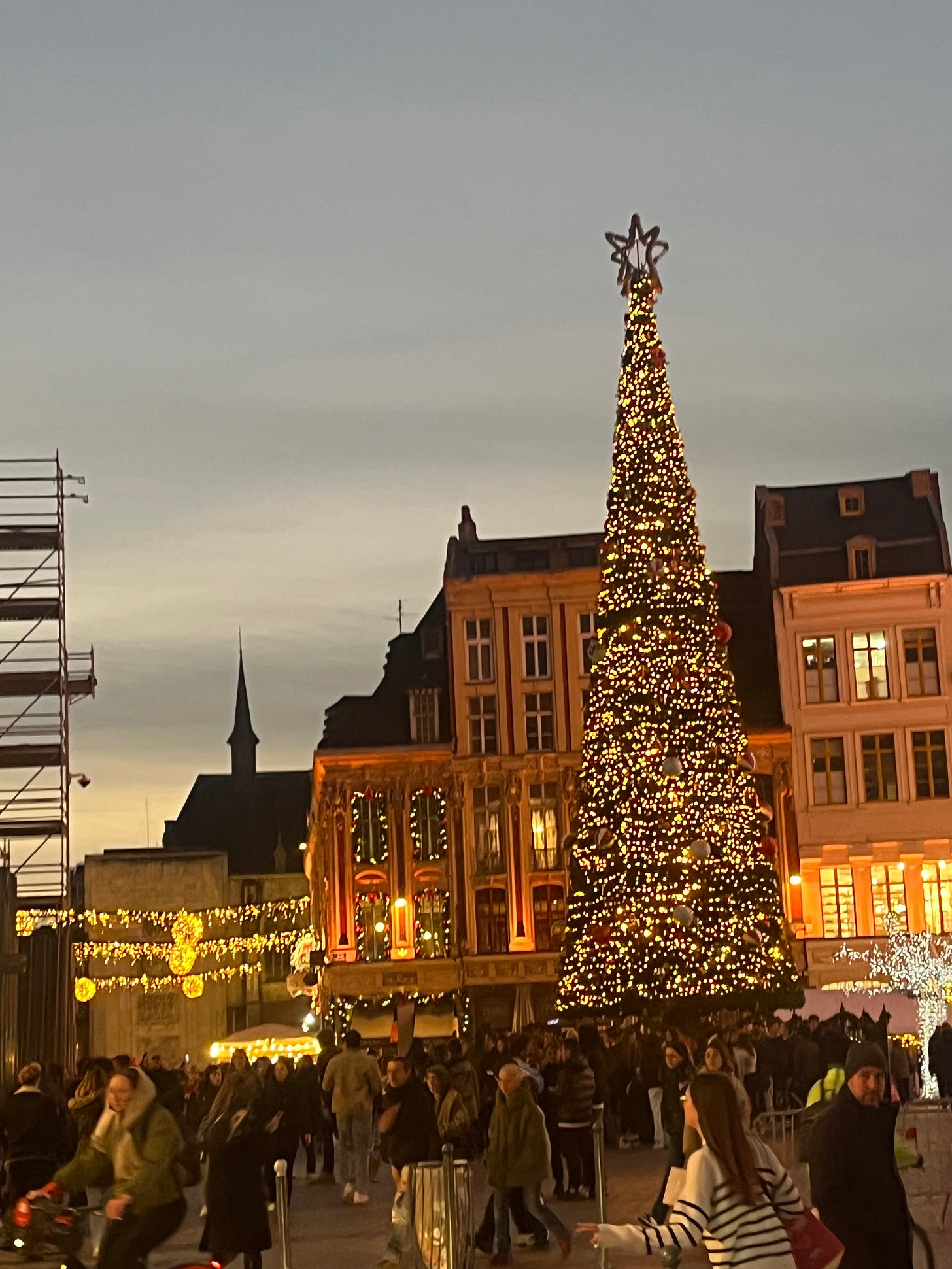
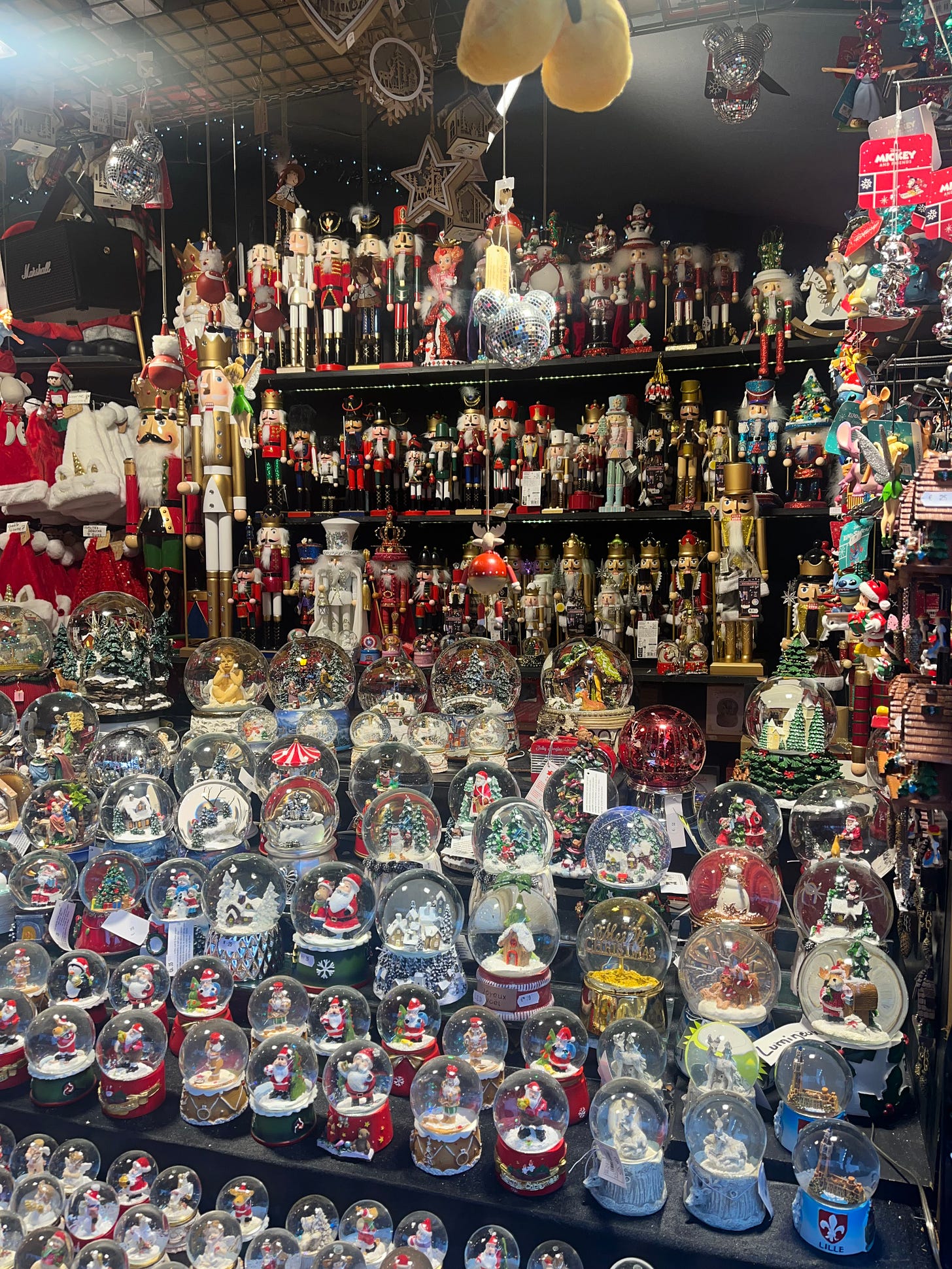

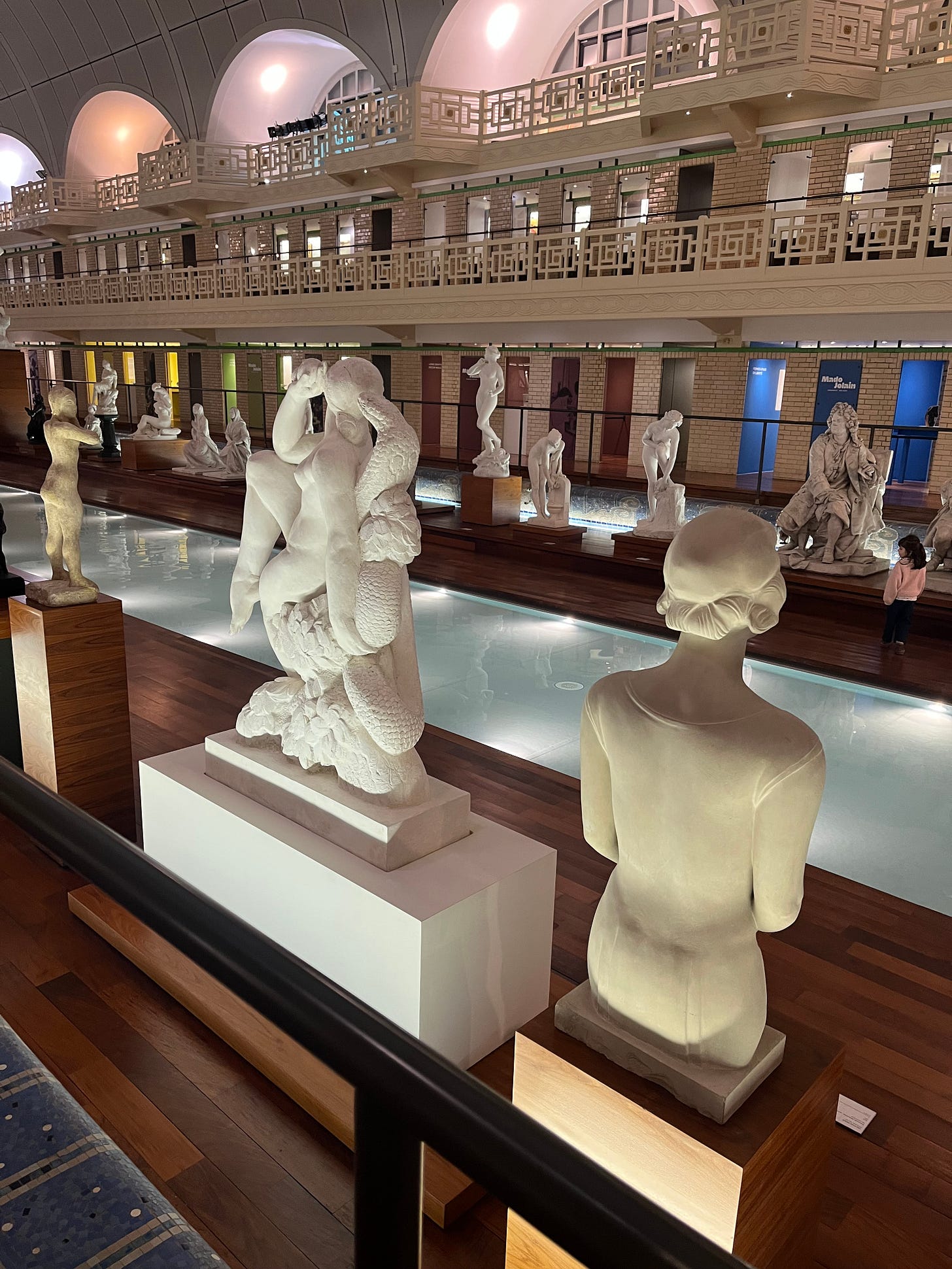
So glad you liked Gemma Bovery ❤️
I had no idea about the Strasbourg Christmas market; if ever I am able I will find my way to Strasbourg and stay for the entire month of the market:
1521. The Sélestat town accountant took up his quill and wrote an entry in the town’s accounting books that would earn it a place in history. He recorded an expense of 4 shillings to pay the forest wardens, who looked after the fir trees in the town’s communal forest. He added that the inhabitants of the town would be able to take a fir tree from the forest to decorate “as has been done since the time immemorial”.
Only you, Hannah, can turn a phrase like this: “I knew it would be quaint and that the old town was chocolate-box pretty…” what a wonderful phrase! I just told my wife that she is “chocolate box pretty” and she said that is the nicest compliment she has ever received.
I was heavily invested, intellectually, emotionally and logistically in the 2024 U.S. election; at age 71 that was my capstone project and even at age 71 it was a huge learning experience about “the system” and the nature of man, and especially too large a segment of women, who have somehow been manipulated over centuries of being told they are inferior to men that they, therefore, must acquiesce to being dominated by men in society.
At 71 I have led a contentious life fighting for equality in the workplace and justice, in general. The U.S. election debacle has freed me; I am no longer attached to my smartphone and the news of the day and I am concentrating on joy and intellectual development.
There is no room to rent between my ears for “he who must not be mentioned” nor the abominable tragedies of the world. I shall read good books, listen to good music, read great writing such as yours, Hannah, and embrace the liberal arts.
I did the best I could and I have earned my reward of joy in solitude.